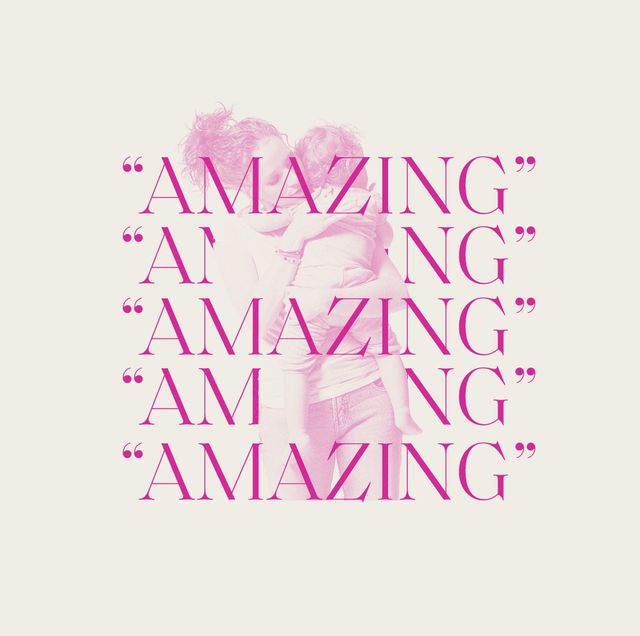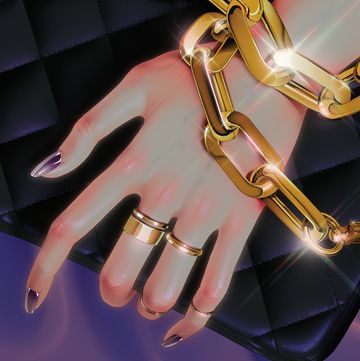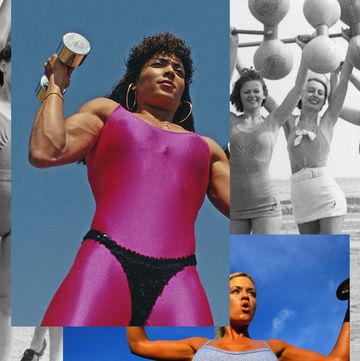Kinsee Morlan was working 12-hour days, which really meant she spent 12 hours each day searching for 20-minute pockets when she could get her actual job done between running her household and overseeing distance learning for her two young sons. Every morning, she gets the kids fed and dressed, helps them log onto their virtual classrooms, and then tries to sneak away to work on the podcast she’s trying to launch. “I was taking charge of all the distance learning because my husband makes more money than me, so it seemed to make sense that before I started work, I would sit down and do their schoolwork with them,” Morlan says.
But of course, her sons needed a lot more from her than just a little help in the morning. By 11am, Morlan would typically finally “go to work for real” in her bedroom, but then 10 minutes later one kid would interrupt, needing help with school; 20 minutes later, the other would call for her. By noon, she’d stop working to make them lunch.
Still, she was managing somehow, even making progress on her podcast, but then, it all fell apart. Late one Friday night in October, she started feeling a little strange, and by the next morning “the entire right side of my body was on fire,” Morlan says. She went to urgent care and found out she had shingles, a painful rash brought on by a virus that is often triggered by stress. She took to social media to write about what happened:
“Pandemic stress is real,” she wrote in an Instagram caption. “Waking up and doing distance learning with my kids, then turning around and putting in almost a full day’s work to get a new show out....it has been brutal. I was in denial and up until tonight I wasn’t ready to admit it, but now I am so here it goes: I AM NOT ALRIGHT. My body finally had to force me to slow down and chill out. And now I promise to never try to pretend everything is ok when it just isn’t. We’re still in the middle of a pandemic. And it's ok not to be ok.”
Her post generated hundreds of comments, many saying they hoped she felt better soon. But in the mix were comments of another kind: “You’re doing great!” “You look fantastic, so whatever you’re doing, keep doing it.” “You are a kickass woman!!”
I have to admit, while I didn't leave a rah-rah! comment on her post, I could have. Morlan is a friend of mine, and I regularly felt in awe of everything she was accomplishing. I knew she was dealing with two kids at home and tackling huge projects at work. And I never thought to ask if she was doing OK, or maybe even gently suggest to her that she figure out how to scale back. I only thought how amazing she was and that I should hold myself to her standard.
And now I realize, in hindsight, that it’s really time for us all to stop telling women they’re amazing. I saw a cartoon recently that summed it up well: A haggard-looking woman is attempting to work, clean her house, and watch her kids, while the people around her say, “You’re amazing!” “Please, I need help,” she begs. “Keep it up, super mom,” they say. “No, please, help me,” she pleads.
When we tell women they're amazing or call them “super moms” for handling everything that they do, implicit in that is the idea that they should keep doing it without some form of compensation. We are actively encouraging women to keep managing everything; to take care of the kids and the house while working a full time job; to get their pre-baby body back, and maybe even do some volunteer work, all at the same time. When we say they’re “amazing,” we’re actually complimenting them for living in a completely unsustainable way. This has to stop.
“Saying you’re a super mom is this pat on the back without any actual substance to help me out—you think I’m doing so great, but this is actually a cry for help,” says Elise Hu, a mom of three young girls who started a podcast on mothering with co-host Amy Westervelt called Labor. She says calling moms “super mom” or “amazing” reinforces a gender disparity for women that isn’t true for men. “It says women in society are expected to do all traditional moming, and that’s a false assumption, it keeps women from being able to be more ambitious and bad ass out in society,” Hu says. “We’re fed this notion that we should parent like we don’t work and work like we don’t parent, and that continues to underline and reinforce false binaries where women are expected to bear a disproportionate share of childcare and household duties. It’s ridiculous.”
Not that women are to blame for accepting these compliments, or for taking on way too much. I’m in no position to say women should be doing less, because I certainly don’t. I’m working full time with a three-year-old, and while my husband and I do our best to divide parenting evenly, I do all the household chores, organizing, grocery shopping, and cooking. And I feel like I’m always taking on more.
If I have a free 10 minutes, I don't sit down and chill out. I think about what I can possibly squeeze in. Can I fold the laundry, empty the dishwasher, send work emails, give the dog a bath, make fundraising phone calls for the parents’ board at my son’s school that I inexplicably volunteered for? I fear I will always take on more tasks—that there’s no end to what I’ll try to do—because if I have a day where my schedule looks a little lighter, I don't enjoy it, I think about what else I can possibly pack in. And when someone asks me to do something extra, I always decide that somehow I can make it work. My point here is not to blame women, but to think about what we can all do to help.
Laila Aziz, a San Diego-based single mom of twin boys who works full time as a criminal justice reform advocate, has found some solutions. “I was trying to be a teacher, mom, employee, and I couldn't do it,” she says. “I realized I had to find what my boys can do for themselves,” Aziz says. And what could her 12-year-old sons do for themselves? Cook. “Before I wouldn’t let them use the stove, but now I say they can make their own food and clean up after. I tell them, ‘You need to do this on your own because I don’t have time.’”
She’s also learning to relax her standards, and realize that just getting through this pandemic with her family’s health and sanity intact is a major win. “I’m that tiger mom, I have that alpha personality, and I want to say, ‘You can’t fail by any means,’ but that can’t work in a pandemic,” Aziz says. “I was holding myself to an unattainable standard.”
For her part, Hu spent the first season of her podcast looking for possible solutions to the unsustainable situation many moms find themselves in. She says it’s important first to cut the “you’re amazing” crap, but then also look for what happens next. “If you admire all these women who are doing double or triple duty during this epic crisis, then do something differently,” she says. “Put funding and policy changes behind it, so the burden isn't so great because women shouldn’t have to do all this—they shouldn’t have to be super.”
Some of the solutions she’s discussed on Labor are low-cost universal childcare and after school care, which she points out is already happening for military families, so the government could expand it. And, Hu says, it would also help to acknowledge the reality of family life today, because while it’s basically become an economic requirement that both parents work, our government and society at large hasn’t added any support, expecting us to still function as if all women were stay-at-home moms. “We’re still locked in this family ideal of Don Draper goes off to work while Betty is at home and takes care of everything,” Hu says. “It’s as if this nuclear two-parent family is how families should look and function, but that’s not reality and not possible given today’s economic climate.”
There are also smaller changes she says families can make, like moms regularly taking days away from the home, not just to get a chance to relax, but to make sure their partners and kids can function without them. Also, looking at more communal parenting models that are practiced in Asian cultures—Hu says families creating bubbles during the pandemic where the parents take turns watching the kids is a good start. “Feminism starts in individual homes, we have to signal that in our own homes, so I have to make sure my kids don’t see me as the one doing all the household chores,” Hu says. “For example, having boys babysit is huge because that’s letting boys be maternal early. The first time a man holds a baby shouldn’t be his own spawn.”
That, at least, has been true in my family. My husband worked at a church daycare as a teenager, so he knew how to change diapers and handle tantrums better than I did. But, I admit, my young son already knows that I do all the chores, and actually likes to joke with me by saying, “have fun cleaning up!” Yikes.
Hu says the pandemic has created an opening to make bigger changes, and we need to act quickly before society returns to its pre-pandemic norms. “We should critique and dismantle this narrative of women doing everything right now because this is the opportunity,” she says.
For Morlan, it took a case of shingles for her family to realize they were relying on her to do too much. “I bring it up to the kids now, and say I’m feeling really frustrated, which turns into stress, which turns into shingles,” she says. “It works to get them back into shape because now they’ve seen that manifestation of stress, and don’t want it to happen again.”
Now, her husband will usually take on one kid in the morning, and is generally looking for more ways to help. “Shingles made me realize I couldn’t do it all, made me admit defeat,” Morlan says. “There’s that expression, you have to have cracks to let the light shine through, so you have to be able to realize that you need help. And sometimes it takes a horrible disgusting rash all over your body to make you realize that.” But please, before the rest of us get shingles, please just ask if we need any help.













